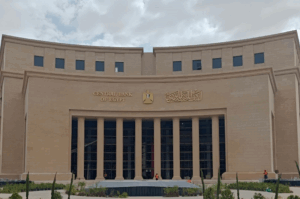Did you hear about the “real estate bubble” or the “housing bubble” but not know what it meant? Instead, have you heard of the “housing bubble” in the Egyptian real estate market?
It is important to note that many people familiar with the idea of a housing or real estate bubble began to worry that one would occur in Egypt and impact the Egyptian real estate market. As a result, they began to refrain from purchasing or making investments in the Egyptian market.
Whether you are familiar with these themes and want to learn more about them or are unfamiliar with them, you should read this article to learn everything there is to know about the housing bubble, including its definition, size, and whether it exists in Egypt.

What is a housing or real estate bubble?
Since we cannot discuss our central thesis—the housing bubble in the Egyptian real estate—without first defining a real estate bubble, let’s start by defining this term.
First and foremost, we are all aware that the laws of supply and demand govern every market and that any deviation from these rules results in a market crash.
Similar to this, when demand, speculation, and careless spending raise home values, a housing or real estate bubble is created. Housing bubbles are usually caused by increased demand in the face of limited supply.
Speculators further boost demand by investing in the market. When supply increases and demand decreases or stays the same, prices fall and the bubble collapses.
Stated differently, a real estate or housing bubble occurs when the market’s supply of real estate exceeds its demand.
To comprehend the reasons behind the Egyptian real estate housing bubble in the future, let’s first examine the causes of the housing bubble.
Which Factors Lead to a Housing Bubble?
As previously mentioned, it all comes down to supply exceeding demand. Unless there is a natural disaster that could lower the supply of homes, real estate prices rise when demand outpaces supply.
The housing supply may react slowly since building or repairing a house takes a long time. For instance, in certain urban areas, there simply isn’t any more land available for development, or perhaps the problem is made worse by municipal rules that forbid the construction of particular buildings.
A housing bubble can also be brought on by a deregulated real estate finance sector, excessive liquidity, speculative activity, manipulated demand, excessively high investment levels, or severe mortgage-based derivative products.
These factors could increase the gap between supply and demand by making real estate prices unaffordable. Compared to other financial markets, housing markets are less prone to bubbles since property ownership entails substantial transactions and carrying costs.
However, if the loan supply grows rapidly and low interest rates and relaxed underwriting standards are the outcome, borrowers might enter the market. If demand drops as a result of increased interest rates and more stringent financing conditions, the housing bubble can burst.
Remember that real estate investing is also a significant part of the process. This can be accomplished by selling or flipping homes, which has an impact on both the supply and demand.
Egypt’s Housing and Real Estate Bubble
Now that we know what a housing bubble is, let’s examine the Egyptian real estate market to determine whether or not it is experiencing or will experience a real estate bubble.
The possibility of a bubble in the Egyptian real estate market is occasionally discussed. These discussions typically take place as a result of the difficulties facing the Egyptian real estate industry, including devolution, exchange rate volatility, and growing inflation.
However, given the strong indications of the market’s durability and ability to overcome challenges, such generalizations require cautious consideration.
Despite this, the market continues to face major challenges, including rising costs that diminish purchasing power, a shortage of affordable housing for those with lower incomes, and the need to offer real estate products that meet changing consumer demands.
Egypt’s real estate sector has demonstrated tenacity in adapting to economic challenges such as currency depreciation and rising inflation. Businesses have responded by developing new marketing strategies and facilitating payments, both of which have contributed to their continuous growth.
The Egyptian real estate market is expanding healthily, and we can declare with confidence that there is no real estate bubble in Egypt because of the country’s expanding population and rising housing needs.
Will Egypt Experience a Housing Bubble in Real Estate?
We in Egypt are safe from housing bubbles at this point. But the question remains: will Egypt experience a housing or real estate bubble?
We can confidently state that the Egyptian real estate market will not experience a real estate bubble anytime soon, despite the many obstacles it faces. Why?
The Egyptian real estate market is expanding, robust, and full of prospects for growth, according to the well-known statistics website Statista.
In spite of the market’s difficulties, how is this expected? The North Coast is becoming more and more popular with tourists, and new cities have emerged in the east, such as New Cairo, and in the west, like New Zayed, as a result of population growth.
Concerning population increase, the average of one million weddings each year necessitates the construction of at least 500,000 new dwelling units.
Furthermore, despite challenges in meeting this need that lead to waiting lists and a widening shortfall, the state provides 450,000 units of subsidized housing to eligible residents, meeting 90 percent of this need.
The government’s efforts to urbanize new cities and draw in foreign investment are responsible for the rise of new cities and tourist attractions. At the same time, the Egyptian real estate market is a new one that is poised to present excellent prospects for both investors and homebuyers.
conclusion
The Egyptian real estate market is currently not experiencing a housing bubble, despite concerns regarding rising costs, currency fluctuations, and inflation. The market is characterized by a growing population and increasing housing demands, with the government providing significant support through subsidized housing initiatives. While challenges exist, such as a lack of affordable housing and the need for real estate products that meet changing consumer preferences, the overall market remains resilient and poised for growth, particularly in emerging areas like New Cairo and the North Coast.




